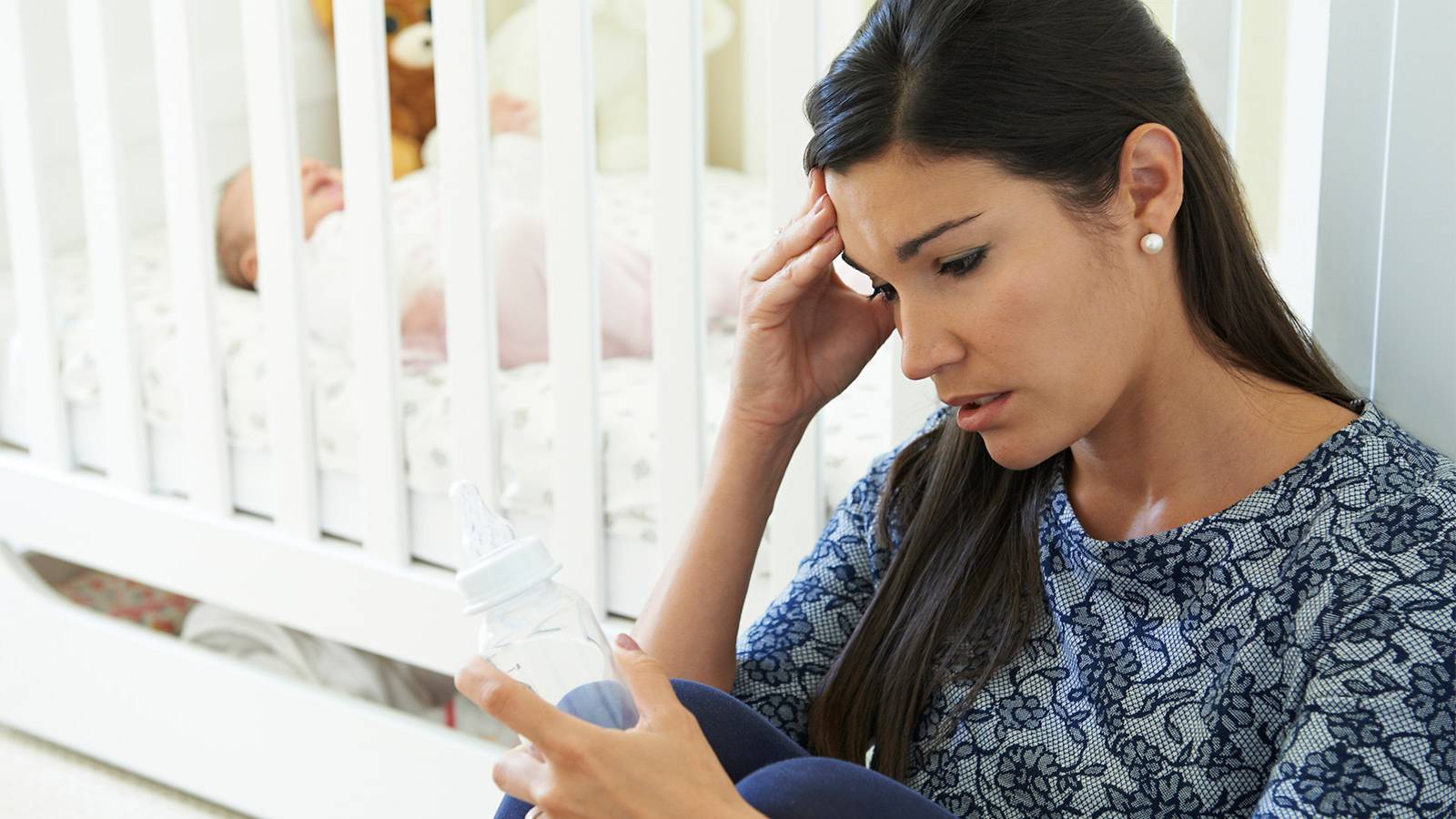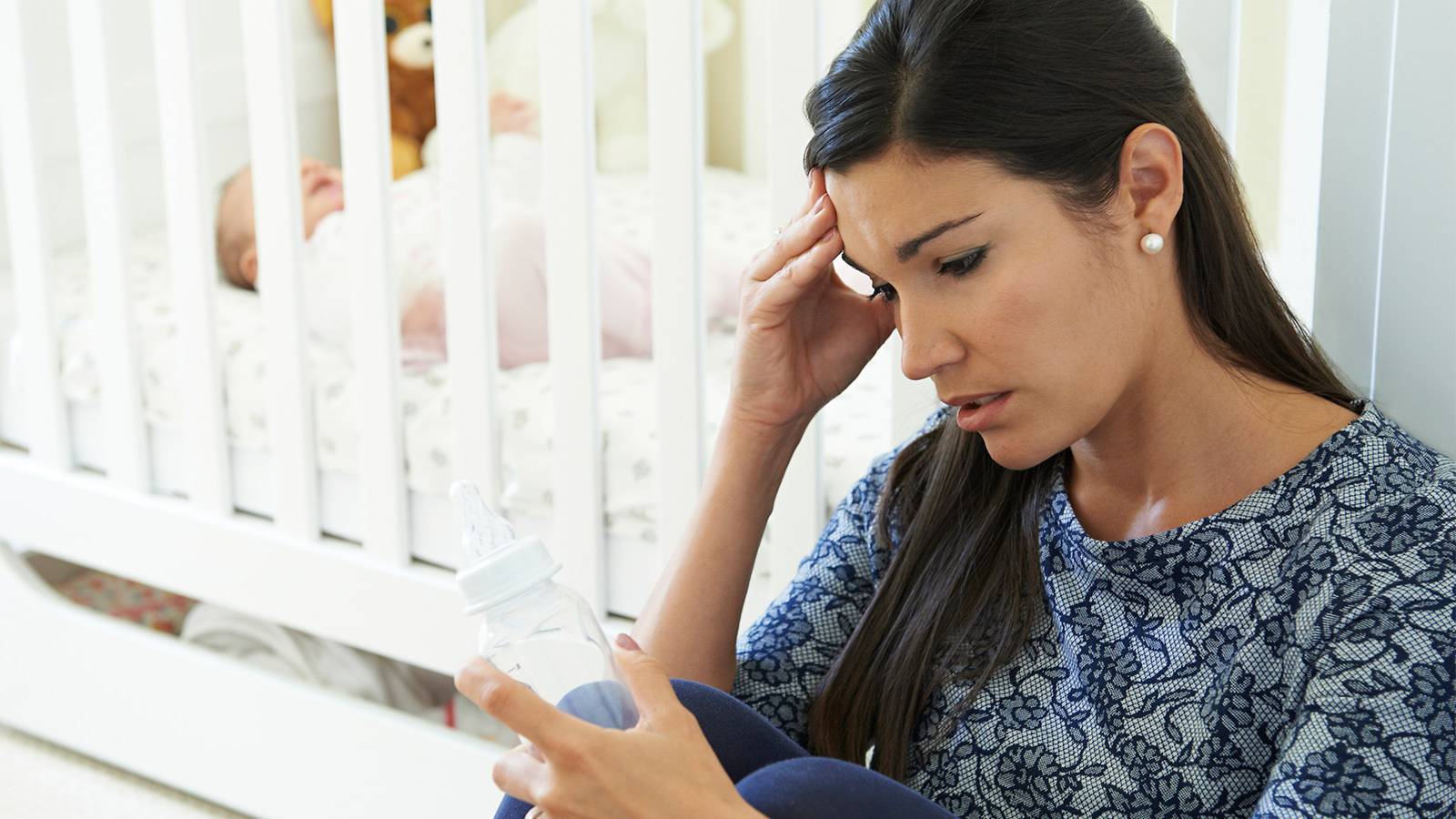Are your sad feelings the baby blues or something more sinister? Also, learn ways to help yourself feel better.

What many call the joy of new motherhood is also a time of anxiety and panic for many women. This initial period, commonly described as the “baby blues”, is usually an emotionally and physically challenging one for mothers, who are getting used to sleep deprivation and feel overwhelmed at having to care for a crying, needy baby.
“The baby blues usually occurs early, within the first few days of childbirth, and is characterised by anxiety, insomnia, weepiness and irritability,” notes Dr Adrian Wang, a consultant psychiatrist at Gleneagles Medical Centre. “It may last up to a month and goes away by itself.”
Some 80 per cent of new mums struggle with the baby blues, according to Mental Health America, a non-profit organisation that promotes mental health. Postpartum depression (PPD) may begin as the baby blues, but the symptoms worsen over time. If you suffered depression or postpartum depression before, you’re at greater risk of getting PPD. Postpartum psychosis, a severe but rare form of PPD, begins 48 to 72 hours after delivery. Symptoms include insomnia, hallucinations, feelings of worthlessness and intense guilt.
“The key feature in postpartum depression is a pervasive sense of gloominess and sadness and feeling guilty about not being able to enjoy the baby,” Dr Wang explains. “The weepiness lasts longer and the irritability is worse — meltdowns and crying spells can last for a long time.”
“Having PPD does not mean you are a bad mother…it’s caused by hormonal and chemical changes in the body. So, don’t be afraid to ask for help.”
Dark daze
An estimated 10 per cent of women in Singapore get postpartum depression, Dr Wang notes. It’s a ballpark figure as there’s a tendency for many women to suffer in silence as they feel ashamed at feeling anything but euphoric when their little bundles arrive.
Mothers should not blame themselves for what they are going through, says psychologist Anoushka Beh, a family therapist who runs her own practice. “This is a huge transition that affects new mums in varying ways due to a number of internal as well as environmental factors.”
With the right support and tools, PPD sufferers can recover and go on to have a fulfilling and happy experience of motherhood and family life, Beh adds.
Dr Wang concurs. “Having PPD does not mean you are a bad mother, or that you have a personal weakness, it’s caused by hormonal and chemical changes in the body. So, don’t be afraid to ask for help.”
If left untreated, a mum with PPD can pose a danger to herself and her baby, warns Dr Hana Ra Adams, a marriage and family therapist. A mum with this debilitating mental health condition may not be able to respond to her baby’s needs and have thoughts about harming herself and her little one. In the worst-case scenario, she may even act on those feelings.
“It can also limit the joy you’d feel with your child and a child’s early attachment to their mother can affect how they attach to others later in life,” she adds.
Read on for handy hints on dealing with your negative emotions…

If you feel like you might be struggling with the baby blues, try these tactics:
* Lean on your husband
Get your man to help out more with chores such as housework and changing diapers, to give you time to relax. Talk about your day to him and what’s been stressing you. He doesn’t need to offer advice or provide a solution, he simply needs to listen. Dr Wang warns men, however, “Don’t criticise your wife or tell her to ‘pull herself together’. PPD is not her fault and also not because she’s ‘not trying hard enough’.”
* Read inspiring stories
Hollywood celebrities like Drew Barrymore, Gwyneth Paltrow and Hayden Panettiere, of the TV drama Nashville, have all suffered from it. Actress Brooke Shields also documented her PPD journey in Down Came the Rain: My Journey Through Postpartum Depression.
Don’t be afraid to ask for help. Also, prioritise what needs to be done and which tasks can wait.
* Manage your expectations
“Remind yourself there are good and bad days,” Dr Adams points out. Be grateful for the good times and when you hit a bad patch, know that this, too, shall pass.
* Make yourself a priority
It may sound ridiculous, especially in the early months of having a newborn who is in need of round-the-clock care, but even small adjustments can make a difference. Rest as much as you can and eat nutritious foods. Squeeze in some light exercise — even basic stretching can get those natural “feel-good” endorphins going. Don’t be afraid to ask for help. Also, prioritise what needs to be done and which tasks can wait.
* Form a support group
Talk to other mums to share the way you are feeling and learn how they are coping — you might be able to glean helpful tips. Having someone to confide in and act as a sounding board can help you restore your sense of connection with society during an otherwise isolating period (on maternity leave).
* Get professional help
Talk first to your obstetrician or GP and get him or her to refer you to someone who has experience dealing with the condition. A therapist can help you make a proper transition as you’ll need to cope with many changes in your life after your baby’s arrival, as well as smoothen out any kinks along the way.
Photos: iStock
Mantras to calm yourself
Ways to de-stress for mums
9 things you didn’t know about your newborn
